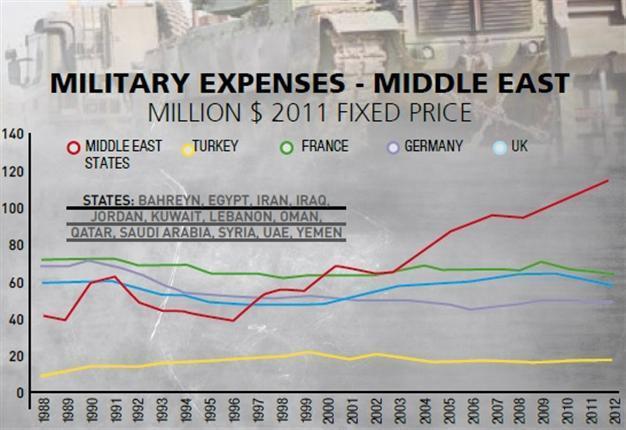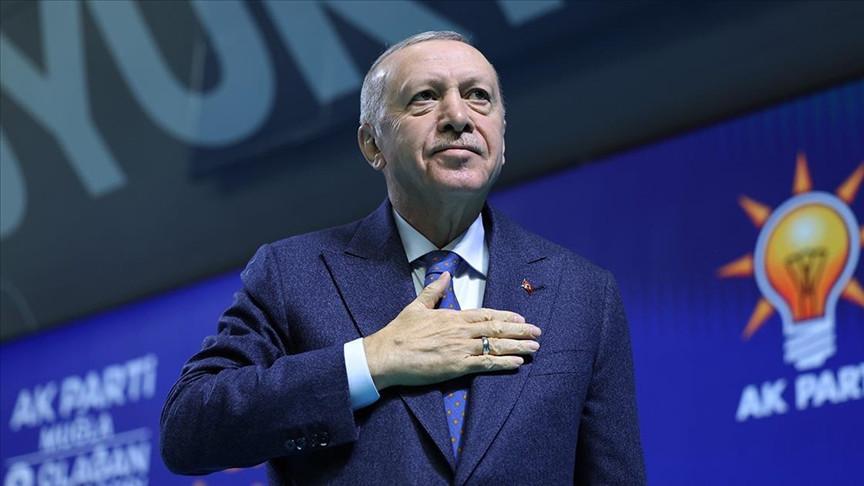Middle East invests in arms, not education
Selçuk Şirin NEW YORK
 Though they continue to lag behind the world in education investments, Middle Eastern countries’ arms spending keeps on rising, according to fresh data.
Though they continue to lag behind the world in education investments, Middle Eastern countries’ arms spending keeps on rising, according to fresh data.The Stockholm International Peace Research Institute (SIPRI) data reveal that Middle Eastern countries increased their arms spending three fold in little over 15 years quarter of a century. These countries, which spent an average of $40 billion on armaments in 1998, now invest an average of $120 billion per year.
While the Middle East has been ramping up its investments in arms, democratic countries elsewhere have not followed this trend, with many either decreasing their arms purchases or keeping their spending at the same level.
It is harder to draw a comparative picture for public investment in education due to the non-transparent and anti-democratic tendencies of several Middle East countries. However, the limited data set shows that the Middle East lags not only behind the developed world, but also the world average, in education investment.
According to World Bank and OECD data, the global average for education investment is around 5 percent of the national budget, while this number goes up to 5.5 percent for European countries. While 4.2 percent of Turkey’s budget is reserved for education, almost all Middle East countries lag well behind. For example, Egypt invests 3.8 percent of its annual budget on education, Iran invests 3.6 percent, Bahrain invests 2.6 percent and Lebanon invests just 2.2 percent. Oman, which spends 4.3 percent of its budget on education, stands as an exception in its neighborhood.
If the arms race in the Middle East can be explained with the need to protect energy-rich lands by force, then why don’t these rich countries spend more on their future, their youth, too?
Political scientist Yeliz Düşkün mentions of the concept of “rentier states” to answer this question. According to this theory, when a state’s revenue is based on energy reserves, and not taxes, then that state doesn’t feel itself liable to its own people, thus creating the conditions for authoritarianism.
As such, the disparity between public investments in arms and education may also explain why there is not a single democracy in the Middle East.
















